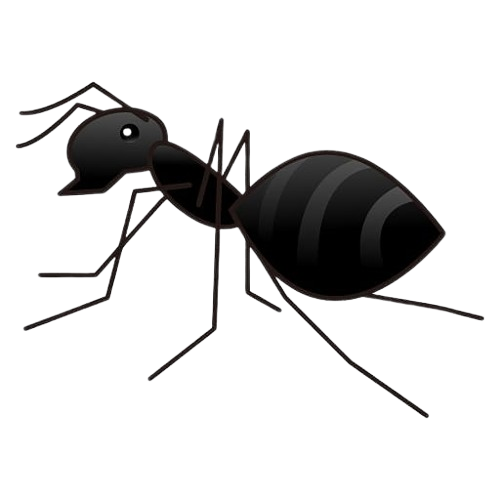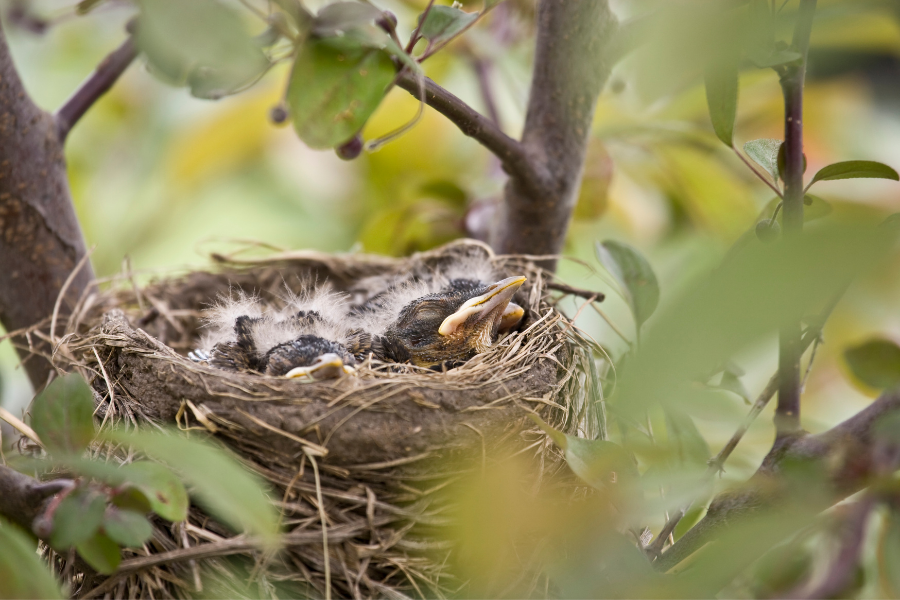
Jul 15, 2025 | Pest Control
Birds are a vital part of Georgia’s ecosystem—but when they decide to build their nests in your vents, gutters, rooflines, or even inside your home, they can quickly become a nuisance. Bird nest removal isn’t as simple as grabbing a ladder and removing it yourself. In fact, depending on the bird species and the time of year, removing a nest may be illegal.
So, when is bird nest removal appropriate? And more importantly—when is it legal? Let’s take a closer look at when and how bird control should be done safely and within the law.
Can I Remove a Bird Nest Myself?
The short answer? Sometimes—but not always. Before you take any action, it’s crucial to determine:
-
Is the nest active? (Are there eggs or chicks inside?)
-
What type of bird built it?
-
Where is the nest located?
If the nest is inactive (no eggs or young), it’s typically safe to remove, but even then, it’s best to proceed cautiously. Many birds are federally protected, including common backyard birds like robins, blue jays, and swallows. Under the Migratory Bird Treaty Act (MBTA), it is illegal to destroy or disturb active nests of protected species without a permit.
Removing an active nest without authorization could result in serious penalties—even if the birds are causing issues.
Why Is It Illegal to Remove a Bird Nest?
The MBTA protects over 1,000 bird species, making it illegal to remove, relocate, or destroy their nests while they’re actively nesting (eggs or young present). This law helps preserve bird populations by ensuring birds can safely raise their young.
Even if a bird seems like a nuisance—leaving droppings on your porch, blocking vents, or squawking loudly—they still enjoy legal protections while nesting. That’s why bird pest control must be handled responsibly and often with professional help.
When Should a Bird Nest Be Removed?
There are some situations where bird nest removal is not only appropriate, but necessary—especially when the nest:
-
Blocks ventilation or exhaust systems
-
Is located in or near flammable materials
-
Attracts insects or mold growth from droppings
-
Poses a health hazard due to excessive bird droppings
-
Is constructed in an unsafe location for humans or birds
Appropriate times for removal include:
-
Before nesting season (Late fall through winter in Georgia)
-
After the birds have left (Look for signs of activity like chirping, visible chicks, or parents coming and going)
-
If the nest is abandoned (Confirm there’s no activity over several days)
Important Tip: Always confirm the nest is inactive before removing it. If you’re unsure, contact a professional for help.
What About Relocating a Bird’s Nest?
Relocating a bird’s nest is tricky—and usually not recommended without expert assistance. Moving a nest even a few feet can cause parent birds to abandon it entirely. And, again, if the bird species is protected, relocating the nest without a permit is considered illegal.
Instead of relocating, consider installing deterrents or barriers once the birds leave to discourage future nesting in that location.
How Much Does It Cost to Have a Bird Nest Removed?
The cost of professional bird nest removal near you varies depending on a few factors:
-
The location of the nest (Is it on the roof? Inside a wall vent?)
-
Whether the nest is active or inactive
-
The number of nests and types of birds involved
-
If cleanup and sanitation is needed (due to droppings or nesting materials)
Why You Shouldn’t Ignore a Bird Problem
It may seem harmless to let a bird build its nest near your home, but bird nests can create a number of problems:
-
Health hazards: Bird droppings can carry bacteria, fungi, and parasites harmful to humans.
-
Structural damage: Nesting materials can block vents and gutters, increasing moisture and fire risks.
-
Insect infestations: Nests attract mites, lice, and even beetles.
-
Recurring issues: Birds often return to the same nesting spot year after year.
If you’re seeing nesting activity in or around your home, the best approach is to call a bird control professional. They’ll identify the bird species, check for activity, and help you develop a plan for safe removal and future prevention.
What Can I Do to Prevent Birds from Nesting?
Once the nesting season ends and it’s safe to remove old nests, take the time to bird-proof your home:
-
Install vent covers to block common entry points.
-
Use bird spikes or netting in problem areas like ledges and rooflines.
-
Keep outdoor lights and porches clean of droppings and nesting materials.
-
Trim back tree branches near windows and eaves.
-
Avoid leaving out open containers of food or water that attract birds.
Proactive bird pest control is the best long-term solution to avoid future nesting issues.
Final Thoughts: Leave It to the Pros
Birds are beautiful—but when they choose your home as their nesting spot, they can quickly become pests. Because many bird species are legally protected, it’s critical to understand when bird nest removal is allowed—and when it could get you into trouble.
When in doubt, don’t DIY it. Reach out to a licensed bird control company that can help you safely remove and deter problem birds without breaking the law.
Looking for bird nest removal near you in Georgia? Our trained professionals are here to help you protect your home and keep birds safely where they belong—in nature, not your vents.
Need Help with Bird Nest Removal?
Contact us today for safe, legal, and effective bird pest control services in Georgia!
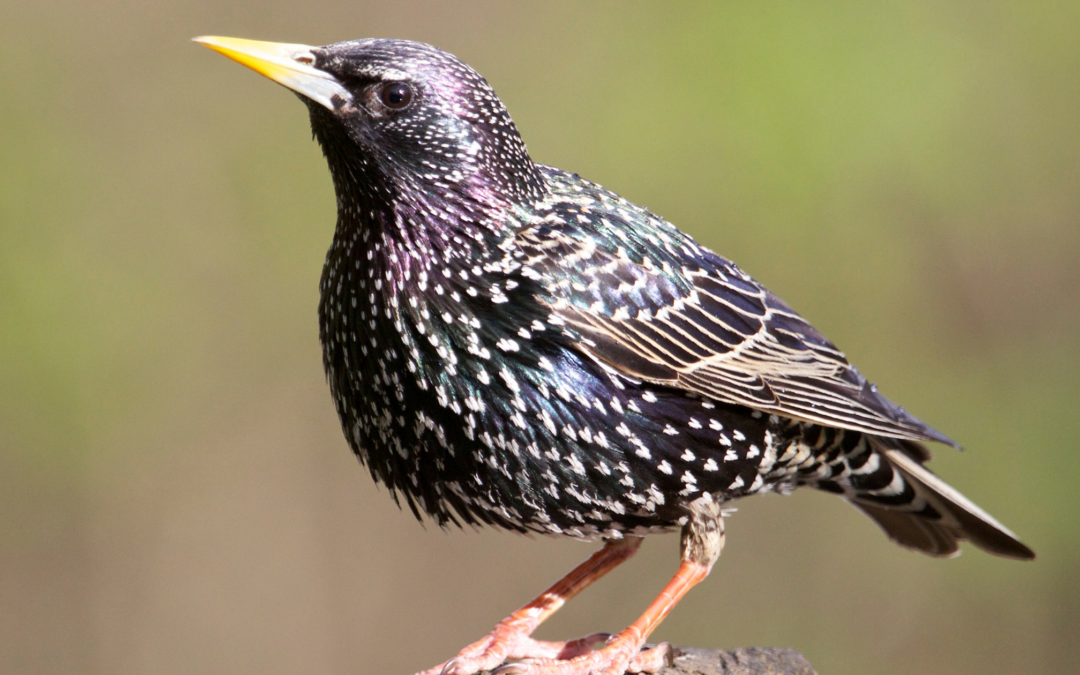
Oct 25, 2024 | Wildlife
When it comes to pest control, most homeowners think of rodents, insects, or larger wildlife. However, one species of bird, the starling, can cause significant problems for property owners in Georgia. With their large flocks, destructive habits, and invasive nature, starlings have become a nuisance in both urban and rural areas. This blog will explore what starlings are, how to identify them, why they are considered a nuisance, and effective and legal ways to manage their presence around your home.
What Are Starlings?
Starlings, specifically the European starling (Sturnus vulgaris), are small to medium-sized birds that were introduced to North America in the late 19th century. A group of bird enthusiasts, inspired by William Shakespeare’s references to the starling, released 100 of these birds in Central Park, New York, in 1890. What followed was an ecological domino effect that resulted in the species spreading across the entire continent. Today, starlings are classified as an invasive species in the U.S., meaning they compete with native birds and wildlife for resources, often to the detriment of local ecosystems.
How to Identify Starlings
Starlings are distinctive birds, making them relatively easy to identify. They have short tails, pointed yellow beaks, and glossy black feathers that shimmer with hints of purple and green in the sunlight. During the winter months, their feathers are speckled with white spots, adding to their recognizable appearance.
They are often seen in large flocks, especially during their breeding season in the spring and early summer. They are incredibly vocal, known for their variety of chirps, whistles, and even mimicking other birds and sounds. If you notice large groups of noisy black birds swarming your yard, you’re likely dealing with these nuisance birds.
Why Are Starlings a Nuisance?
Starlings are more than just noisy birds—they can cause significant issues for homeowners and the environment. Here’s why:
- Property Damage: Starlings are cavity nesters, which means they seek out holes and crevices to build their nests. They often invade vents, gutters, and eaves of homes, sometimes clogging these systems and leading to water damage. They are known to make nests inside buildings, causing structural damage and creating fire hazards if their nesting material is placed near electrical wiring.
- Health Risks: Like other birds, starlings can carry diseases that are harmful to humans. Their droppings, which are acidic and can corrode building materials, may also harbor pathogens such as histoplasmosis, a respiratory disease. The large flocks they form can produce significant amounts of droppings, increasing the health risk for homeowners.
- Crop Damage: Starlings have a broad diet and are notorious for raiding crops. They consume fruits, vegetables, and grains, making them a major agricultural pest. In urban areas, starlings scavenge for human food, which encourages them to flock to parks, dumpsters, and residential neighborhoods.
- Competition with Native Birds: One of the biggest reasons starlings are considered a nuisance is their impact on native bird species. As an invasive species, starlings aggressively outcompete native birds like bluebirds, woodpeckers, and swallows for food and nesting sites. Their presence reduces biodiversity and harms local ecosystems.
What Do Starlings Eat?
Starlings are omnivorous, meaning they eat both plant and animal matter. Their diet includes insects, earthworms, fruits, seeds, and grains. In urban areas, starlings often scavenge for leftover human food, adding to their reputation as a nuisance in populated areas. During the breeding season, their diet shifts to more protein-rich foods like insects, which they feed to their chicks. Their adaptability in diet allows them to thrive in various habitats, from urban areas to farmlands, making them difficult to control.
How to Get Rid of Starlings
Given their ability to form large flocks and cause property damage, controlling starling populations can be challenging. Here are some effective and legal methods to reduce starling activity around your home:
Exclusion Methods
The most effective way to deal with starlings is to prevent them from entering your property in the first place. Sealing off vents, chimneys, and other potential nesting sites can stop starlings from setting up nests in your home. Installing bird netting around high-traffic areas such as attics and eaves can deter them from gaining access.
Deterrents
Starlings are known to avoid certain visual and auditory deterrents. Hanging reflective objects like aluminum foil strips or installing bird spikes on ledges can make your home less appealing. You can also use sound machines that play predator calls or distress signals to scare starlings away.
Limit Food Sources
Starlings are opportunistic feeders. Removing easy access to food by securing garbage cans, picking up fallen fruits, and using bird feeders designed to exclude starlings can reduce their presence in your yard.
Professional Wildlife Services
For more extensive infestations, contacting a wildlife control company that specializes in bird control may be necessary. These professionals can implement more advanced strategies such as trapping or relocating starlings. In some cases, they may even use chemical repellents that are safe for both the birds and your family.
Legal Considerations: The Migratory Bird Treaty Act
It’s important to note that while starlings are invasive, they are still protected under some federal laws. The Migratory Bird Treaty Act (MBTA), passed in 1918, protects many bird species from being hunted or harmed without a proper permit. However, starlings, along with other invasive species like pigeons and house sparrows, are not afforded the same protections under this law. This means that homeowners and wildlife services can legally take action to reduce starling populations on their property, as long as it is done humanely and within local regulations.
Reducing Starling Populations During Breeding Season
During the breeding season, starlings are especially active as they search for food and nesting sites. This is the time when large flocks can form, and their presence can become overwhelming for homeowners. It’s crucial to take preventive measures before the breeding season begins in the spring. By sealing entry points and removing food sources early, you can prevent starlings from making your home their nesting site.
Starlings, with their adaptability and invasive nature, can pose significant challenges for Georgia homeowners. Their large flocks, property damage, and competition with native species make them a nuisance that requires proactive control methods. By identifying these birds early and implementing exclusion and deterrent strategies, you can reduce the likelihood of a starling infestation. If your starling problem persists, contacting a professional wildlife control company that specializes in bird control can ensure the issue is managed legally and effectively.
Whether you’re dealing with starling flocks or preventing them from nesting in your home, understanding these nuisance birds and taking swift action is key to protecting your property and local wildlife.

Jun 21, 2024 | Commercial, DIY Wildlife Prevention
Birds can be charming creatures, often bringing a touch of nature to urban environments. However, when it comes to commercial properties, birds can become a significant nuisance and even a health hazard. From unsightly droppings to potential property damage and health risks, preventing birds from nesting or roosting around your business is essential. In this blog, we will explore the challenges birds pose to businesses, the importance of bird control, and effective strategies to keep your property bird-free.
The Challenges Birds Pose to Businesses
Birds can cause numerous problems for commercial properties, including:
- Health Risks: Bird droppings can harbor diseases such as histoplasmosis, cryptococcosis, and psittacosis. These diseases can be transmitted to humans, posing health risks to employees, customers, and visitors.
- Property Damage: Bird droppings are acidic and can corrode building materials, signage, and vehicles. Nesting materials can clog gutters and drains, leading to water damage.
- Slip and Fall Hazards: Accumulations of bird droppings on walkways and entrances create slippery surfaces, increasing the risk of slip and fall accidents.
- Negative Aesthetic Impact: Bird droppings and nests can create an unsightly appearance, detracting from the professional image of your business.
- Noise Pollution: The constant noise from birds can be disruptive to both employees and customers, affecting productivity and customer experience.
The Importance of Bird Control
Implementing effective bird control measures is crucial for maintaining a safe, clean, and professional business environment. Here’s why bird control is important:
- Health and Safety: Protecting the health and safety of employees and customers is a top priority. Bird control helps reduce the risk of disease transmission and accidents.
- Protecting Property: Preventing birds from causing damage saves on repair costs and preserves the integrity of your building and assets.
- Maintaining Aesthetics: A clean, bird-free environment enhances the appearance of your property and reinforces a positive image for your business.
- Compliance: In some areas, businesses are required to comply with health and safety regulations related to bird control. Effective bird management helps ensure compliance with these regulations.
Effective Bird Control Strategies
- Eliminate Food Sources: Ensure that garbage is securely stored and promptly clean up any food spills or crumbs.
- Remove Water Sources: Fix leaks and eliminate standing water to reduce the availability of drinking water for birds.
- Trim Vegetation: Regularly trim trees and bushes to reduce nesting opportunities and remove cover for birds.
- Professional Bird Control Services: Partnering with a professional pest control company can provide comprehensive bird management solutions.
Birds can pose significant challenges to businesses, but with the right strategies, you can prevent them from becoming a nuisance. Contact your local pest management company near you today to schedule an inspection and protect your business from the challenges posed by birds.
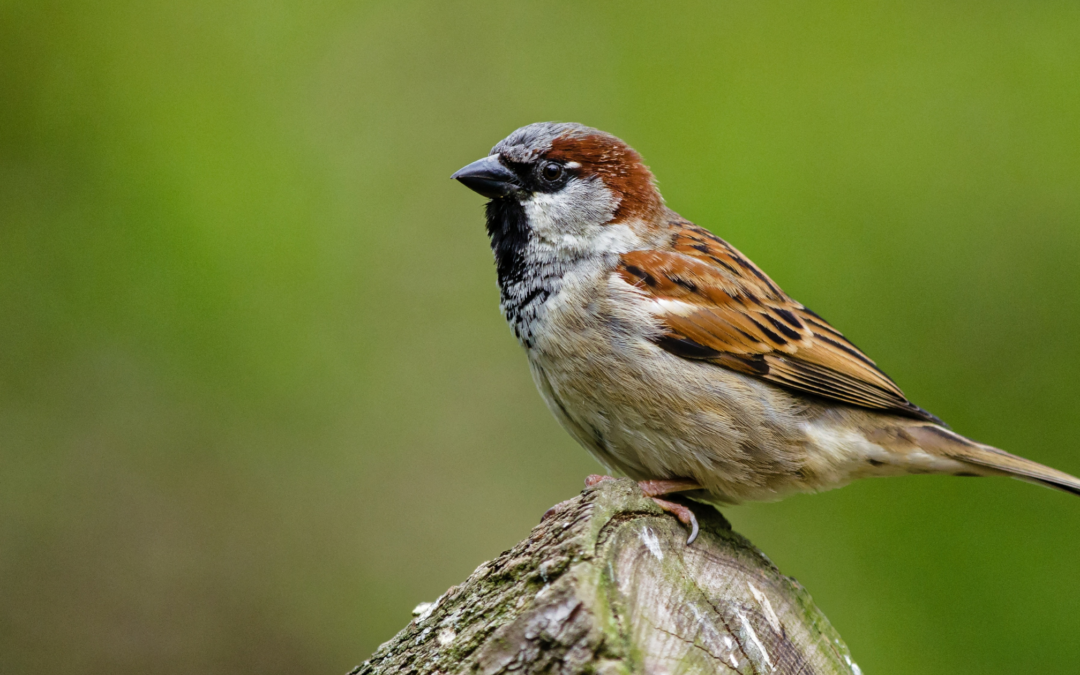
May 17, 2024 | DIY Wildlife Prevention, Wildlife
Nestled in the heart of the South, Georgia boasts lush landscapes and vibrant wildlife. However, along with its natural beauty comes the challenge of dealing with nuisance birds. From pesky pigeons to assertive seagulls, these feathered intruders can wreak havoc on homes and businesses alike. In this guide, we’ll explore common nuisance birds found in Georgia, the risks they pose, effective methods for bird control, and preventive measures to keep your property bird-free.
Common Nuisance Birds in Georgia
Georgia is home to a variety of bird species, some of which can become unwelcome guests on your property. Among the most common nuisance birds encountered in the state are:
- Pigeons: Found in urban areas and often congregating around buildings and bridges, pigeons are notorious for their droppings, which can damage structures and pose health risks.
- Sparrows: These small birds are adept at finding their way into buildings through small openings, where they may roost and nest, causing damage and spreading disease.
- Starlings: Known for their large flocks and noisy behavior, starlings can quickly become a nuisance, especially around agricultural areas where they can damage crops.
- Seagulls: While typically associated with coastal regions, seagulls can also be found inland, scavenging for food in urban and suburban areas. Their aggressive behavior and droppings can pose significant problems for property owners.
Risks Posed by Nuisance Birds
Beyond their irritating presence, nuisance birds can pose several risks to both property and human health:
- Property Damage: Bird droppings contain uric acid, which can corrode building materials such as metal, wood, and stone. Accumulated droppings can deface structures and lead to costly repairs.
- Health Hazards: Bird droppings can harbor harmful bacteria, fungi, and parasites, posing health risks to humans and pets. Inhaling airborne particles from dried bird droppings can also cause respiratory issues.
- Nesting and Roosting: Birds often nest and roost in eaves, vents, and other sheltered areas of buildings, leading to clogged gutters, damaged insulation, and fire hazards from nesting materials near electrical fixtures.
How to Get Rid of Nuisance Birds
When faced with a bird problem, it’s essential to employ effective bird control strategies. Here are some methods commonly used by wildlife control companies:
- Bird Spikes: Bird spikes are physical deterrents installed on ledges, signs, and other surfaces to prevent birds from roosting or landing. These spikes make it uncomfortable for birds to perch, encouraging them to seek alternative locations.
- Bird Netting: Bird netting creates a barrier that prevents birds from accessing specific areas, such as rooftops or balconies. It’s an effective solution for large open spaces where other deterrents may not be practical.
- Bird Repellents: Various bird repellents, including visual deterrents like scarecrows and reflective tape, as well as auditory deterrents like ultrasonic devices, can deter birds from settling in unwanted areas.
- Exclusion Devices: Installing screens, vents, and other exclusion devices can prevent birds from entering buildings and nesting in attics, vents, and chimneys.
- Habitat Modification: Removing food sources, such as open trash containers and bird feeders, can discourage birds from congregating in specific areas.
Preventing Nuisance Birds from Your Property
While effective bird control measures can help address existing bird problems, preventing future infestations is key to long-term success. Here are some preventive measures to consider:
- Seal Entry Points: Conduct regular inspections of your property to identify and seal any openings that birds could use to access buildings or nesting sites.
- Maintain Cleanliness: Keep outdoor areas clean and free of food scraps, garbage, and standing water, which can attract birds looking for food and water sources.
- Trim Trees and Shrubs: Trim trees and shrubs near buildings to eliminate potential roosting and nesting sites. Removing overhanging branches can also prevent birds from gaining access to rooftops.
- Install Bird-Proofing Devices: Proactively install bird-proofing devices, such as chimney caps and vent covers, to prevent birds from nesting in vulnerable areas.
- Implement Routine Maintenance: Regularly inspect and maintain your property to address any potential bird-attracting conditions, such as clogged gutters, leaky pipes, and damaged roofing materials.
Dealing with nuisance birds can be a challenging task for property owners, but with the right approach, it’s possible to keep these feathered intruders at bay. By understanding the common nuisance birds found in Georgia, recognizing the risks they pose, and implementing effective bird control and prevention strategies, you can protect your property from damage and ensure a bird-free environment. Whether you’re facing a minor bird problem or a full-blown infestation, partnering with a reputable wildlife control company can provide expert assistance in addressing your bird control needs.
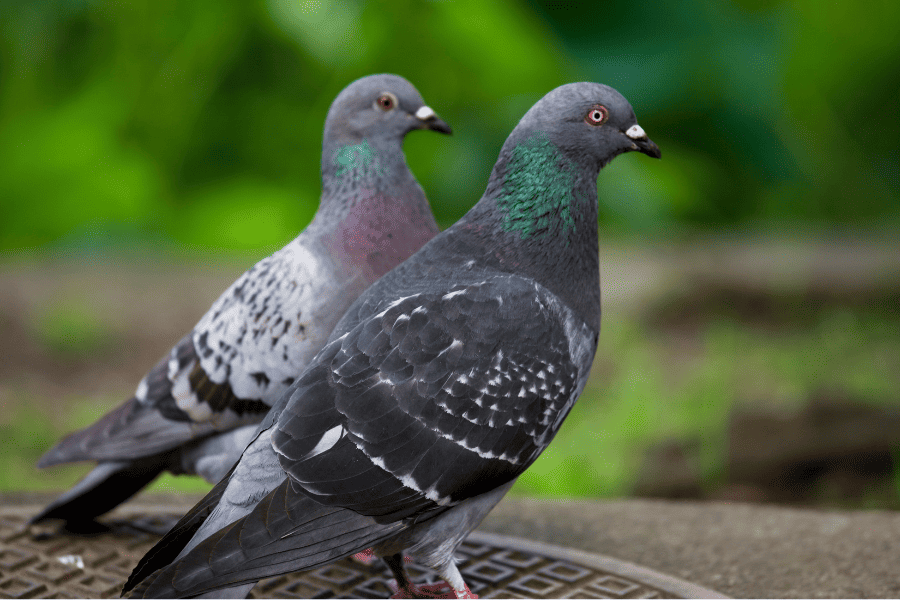
Jan 26, 2024 | Commercial, Wildlife
When left unaddressed, birds can wreak havoc on your business. As a business owner, protecting your reputation and bottom line is crucial to your success. We breakdown the dangers nuisance birds can be to your business if invaded and bird control methods you can place to deter them away.
Problems Birds Cause to Businesses
Birds can cause many problems for your business and property. It’s crucial to understand the issues birds can bring so you can effectively deter them.
- Health risks: Birds and their droppings can spread more than 60 diseases, including Salmonella and E. coli. They can also attract other pests, including rats and insects, that pose additional health threats to your team and customers.
- Property Damage: Bird droppings can be corrosive and cause damage to roofs, balconies, equipment, and more. The cost to repair their damage can be costly and disrupt your regular business operations.
- Safety Risks: Bird droppings can create a slippery surface, especially on walkways, stairs, and entrances. This can lead to customer or employee slip-and-fall accidents.
- Food Contamination: If you’re in the food business, a bird infestation can pose a risk of food contamination, which can lead to food poisoning and other health issues for your customers.
Bird Control Methods for Your Business
One of the best ways to deter these nuisance birds away is to create an environment that’s less attractive to them. Check out these humane preventative tips to keep birds from invading your business.
Bird Netting
This method can act as a barrier to keep birds away from your building. The netting is often made of polypropylene and has stainless-steel hardware, which can be invisible to your customers’ eyes. It can best protect your business from smaller birds like swallows and sparrows. Bird netting can protect areas such as loading docks, rooftops, courtyards, storefront signs, balconies, open beam structures, and more.
Spikes
Spikes are harmless deterrents that work great to deter birds, such as pigeons, away from a structure. Spikes are made from stainless steel or plastic and are placed upward to make it difficult for birds to land or make it uncomfortable to roost. Spikes can be placed on ledges, parapets, gutters, signs, and more.
Visual Deterrents
Visual deterrents or decoys are a great tool to utilize around your business property to deter birds. Decoys that resemble owls or other predators can scare birds away. Other deterrents include holographic and reflective materials like optical gel, scare tape, and more. This method can be a great addition to other bird control methods you have already placed at your business.
If you’ve seen more bird activity than you’re comfortable with around your business, call your local professional wildlife control team for assistance. These bird experts will provide you with the best options to prevent the nuisance birds, deter them from your property, and control them to avoid a future bird infestation.







